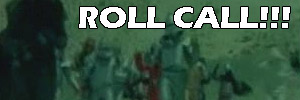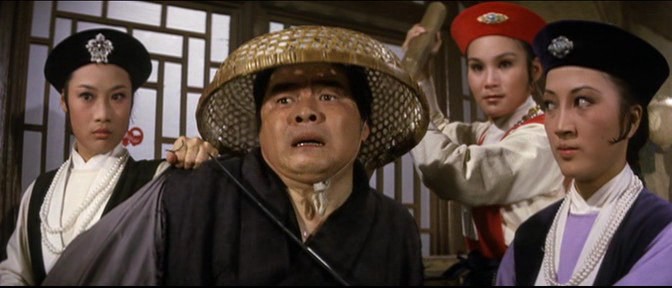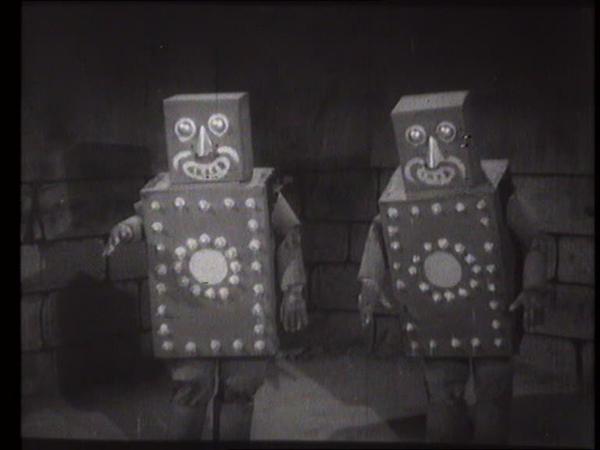The Fate of Lee Khan
aka 迎春閣之風波 aka Ying Chun Ge Zhi Fengbo

1973![]()
Written by King Hu and Wong Chung
Directed by King Hu

King Hu’s works are amazing, and he is one of the most influential artists in martial arts film history. That being said, The Fate of Lee Khan was made after Dragon Gate Inn and A Touch of Zen, and the biggest flaw is it just doesn’t live up to those classics. It is a good story, full of intrigue and great choreography. But it just feels smaller scale and lacks some of the smaller character moments that a smaller story should have. Lee Khan just doesn’t seem as dangerous as he should be considering he is supposed to be this big ultimate villain. The best way to describe him would be as the mediocre villain of the second film in a super hero series who bridges the gap before the more memorable villain in the third film.
The word is The Fate of Lee Khan was one of two productions of King Hu’s under his company, Gam Chuen (the other was The Valiant Ones). The films were to be distributed by Golden Harvest, who would gain the rights to Lee Khan while Hu would own The Valiant Ones. As usual, Hu’s films fell behind in filming, Lee Khan was barely finished by 1973, while The Valiant Ones wasn’t completed until 1975, and Gam Chuen then petered out.

It is a time when the Mongols have overstayed their welcome and General Zhu leads an army to fight them, spies are rife and everyone is paranoid. Lee Khan is a local overseer of two provinces and prince of the royal family, with his sister Lee Wan-Er as his loyal assistant. He found a member of General Zhu’s army to sell out and leaves to personally receive a map of battle plans. But this leads to opportunity and intrigue at a local inn, as these matters often do…

|

The inn receives guests, and if you’ve seen enough of these films you know a lot of the guests who show up have their own agendas that they are running. Besides the spies for the various factions, there is a constant stream of robbers, bandits, gambling cheats, and officials looking for free food and free trouble. One problem I had with Dragon Gate Inn was it seemed like everyone was a secret super powerful kung fu master running one of the sides. Here there all levels of people running all agendas, even a bunch of innocent guests. The waitresses are well-versed enough in fighting to be able to handle most of the problems easily, even the lecherous guy Wen Mei-Chi (Wei Pin-Ao), who turns out to be transparently working for the Mongols. Helen Ma’s waitress is less capable of handling actual waitressing, being rude to the guests (her character is a former bandit and is having trouble adjusting to a more controlled life.)
The women are joined by Wang Chun and Sha Yuan-san, Wang Chun is disguised as Madam Wan’s cousin who is helping with the bookkeeping, and Sha Yuan-san as his servant. The stage is then set for the arrival of Lee Khan and his entourage, which will lead to intrigue, distractions, theft, death, and a climactic battle that will see many characters fall. The plan is simple, get the map and kill Khan if they can, but we all know what happens with simple plans.
Inside the inn the introduction scenes are lighter-hearted with colorful characters, loudmouth peasants, gambling cheats, annoying musicians, and soldiers escorting a prisoner caravan that demand free food. Black Peony even tries to use her pickpocket skills, but Madam Wan makes her return what she stole in a humorous sequence. The stakes increase with each new arrival, and by the second half things have become far more serious. Characters who were amusing start becoming dead bodies
The tonal shift codifies the danger that Lee Khan and his Mongol government represents to the people of China. By the time Lee Khan and his people are there, the other guests are tossed out and a few traitors are executed (all characters we have encountered so far) Things become a lot more tense as any misstep means certain death, the inn feeling more like a prison than an oasis in the desert it once was. When Lee Khan leaves the inn, the environment is a barren desert, harsh and cruel, and the battles that happen upon its sands are just as cruel.
Even though Lee Khan is evil, he just isn’t EVIL, his character never becoming the cackling super villain you’d expect. He even doesn’t discriminate against Han Chinese, he only wants people who are good at their job and can preserve order. He’s cultured and generous with rewarding the people who help him. But he’s also part of an invasion force that rules territory it conquered with a brutal hand. Hsu Feng as Lee Wan-Er just seems so much more wild and dangerous than her brother, it is her who is calling for death of those who are arrested, and her who is more outwardly suspicious and critical of the inn’s staff. She’s also a fierce fighter, a match for any of the waitresses. She’s the big stick used to enforce the will of Lee Khan so he can be the pleasant despot. It’s a good nuance, and even though I dismissed Lee Khan’s character as not that memorable earlier, it’s probably way more historically accurate than if he was a crazy madman who bathes in the blood of his enemies.
The battles themselves in the end don’t jump to choreographical excess, but do a lot of damage with brief amount of movements. They were choreographed by Sammo Hung, and he keeps the tension dangerous as the characters must think through their moves lest they be their last, but also strike swiftly enough to hit the opponents.
The Fate of Lee Khan may not be the best, but it is hands and shoulders above many other competitors, which makes it still something worth tracking down and checking out.

Rated 8/10 (painting, painting, painting, painting, painting, stolen, gambling, money talks)
Please give feedback below!
















